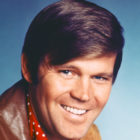Editor’s note: InDepthNH.org welcomes lawyer/author Michael Davidow’s new monthly column ‘Radio Free New Hampshire’ in time to be a delightful Christmas present to our readers. Davidow is the author of Gate City, Split Thirty, and The Rocketdyne Commission. He has lots to say.
By Michael Davidow, Radio Free New Hampshire
A few notes about what I’ll miss as this year in American politics comes to an end.
-

U.S. Sen Susan Collins, R-Maine
Susan Collins. Everybody loves the duck-billed platypus, and everyone loves this senator from Maine. The same combination of unlikely characteristics; the same charming throwback quality; the same general aura of befuddlement mixed with indomitability. With her vote in favor of Donald Trump’s tax bill, however, I don’t see her surviving in her present form much longer. She has bent so far over by now, she must break. In a related vein:
- The Republican Party. Speaking of which, can you imagine a political party with leaders like Susan Collins (pre-extinction), John McCain, and George H.W. Bush? Well, that used to be the actual Republican Party, which existed for a century to combat the anti-democratic bossism of the major cities, the Jim Crow racism of the American south, and the creeping tendency of government in general to dictate morality to those who lacked it. It used to be the kind of party, where if they won a seat or two in Congress, you would not necessarily begin checking house prices in Montreal; you would actually stick around to see if they could accomplish anything. Now it exists strictly because politics, like nature, abhors a vacuum, and the utter long-term failure of its ancient counterpart (that would be the Democratic Party) to address the hopes and needs of its classic constituencies has left the poor and uneducated with nowhere else to call home.
- Hillary Clinton’s future. Sure, her campaign was engineered, apparently, by those elite members of the coastal cognoscenti who could not get enough of Martha Coakley. And sure, I can already envision the volumes that will be written about this sad sack in years to come, as unborn academics grapple with her manifest complexities: even though from the vantagepoint of December, 2017, she is about as complicated as an empty paper bag (her public persona can be boiled down to three words: “’Hello,’ she lied.”). But I’ll still miss her (and won’t we all?), because I found her personal progress from being a Goldwater Girl to being a Rockefeller Republican, and then ten steps sideways again to being a total hack (lacking, all the while, Goldwater’s integrity, Rockefeller’s conscience, and the straightforward political competence we expect from our hacks) to be one of the most fascinating stories in American history since the fall of Earl Butz. Which reminds me:
-

Al Franken
Al Franken. Thank god the Democratic Party has finally found an answer to Trumpism: getting rid of clowns like Al Franken, as well as any vestige of proportion and fairness. I have actually been to Minnesota, mind you. Minnesota is a wonderful state. It has handsome, tall people, incredibly cold weather, and an organization called the “DFL,” which stands for the Democratic-Farmer-Labor Party, a formulation which harkens back to the time when Democrats, farmers, and laborers actually believed they had something in common. Something about economic justice, I bet. Whatever that might be. Franken had to go, clearly. Take that, Donald Trump.
- Net Neutrality. This has something to do with computers. Which means that somewhere, somebody will be making a lot of money from it, and that somebody won’t be me. I am therefore generally opposed to whatever this is, or isn’t. Because it doesn’t seem fair. To me. And finally:
-

Glen Campbell
Glen Campbell. To be honest, I always thought Glen Campbell was a bit of a square. He had that strange head of hair, too much combed and sprayed in the wrong places; his songs used string sections; he seemed to be popular with Republicans. But just as I now appreciate those old-time Republicans more than I used to, I also appreciate Glen Campbell more than before, and I am sorry that he is gone. His trilogy of place songs—Galveston, Wichita Lineman, and By the Time I Get to Phoenix, all written by Jimmy Webb—they each make me sad inside, and therefore strangely happy too. Galveston talks about dying. The other two talk about being lonely. Real emotions, wonderful songs, and don’t forget that Campbell was a member of the Wrecking Crew, no less: that famous group of session players that gave musical professionalism a good name in the 1960’s. Yes, Glen Campbell was a professional. With a conscience, and integrity, and I bet he even felt respect for the farmers and laborers he met on his journey.
Phoenix was covered by Isaac Hayes, by the way, in his early album Hot Buttered Soul. It’s an awesome piece of work, with piano lines that shimmer like the stars on winter nights. It will give you something to hum to yourself, as we start this next year.
Michael Davidow is a lawyer in Nashua. He is the author of Gate City, Split Thirty, and The Rocketdyne Commission, three novels about politics and advertising which, taken together, form The Henry Bell Project. His books are available on Amazon.





